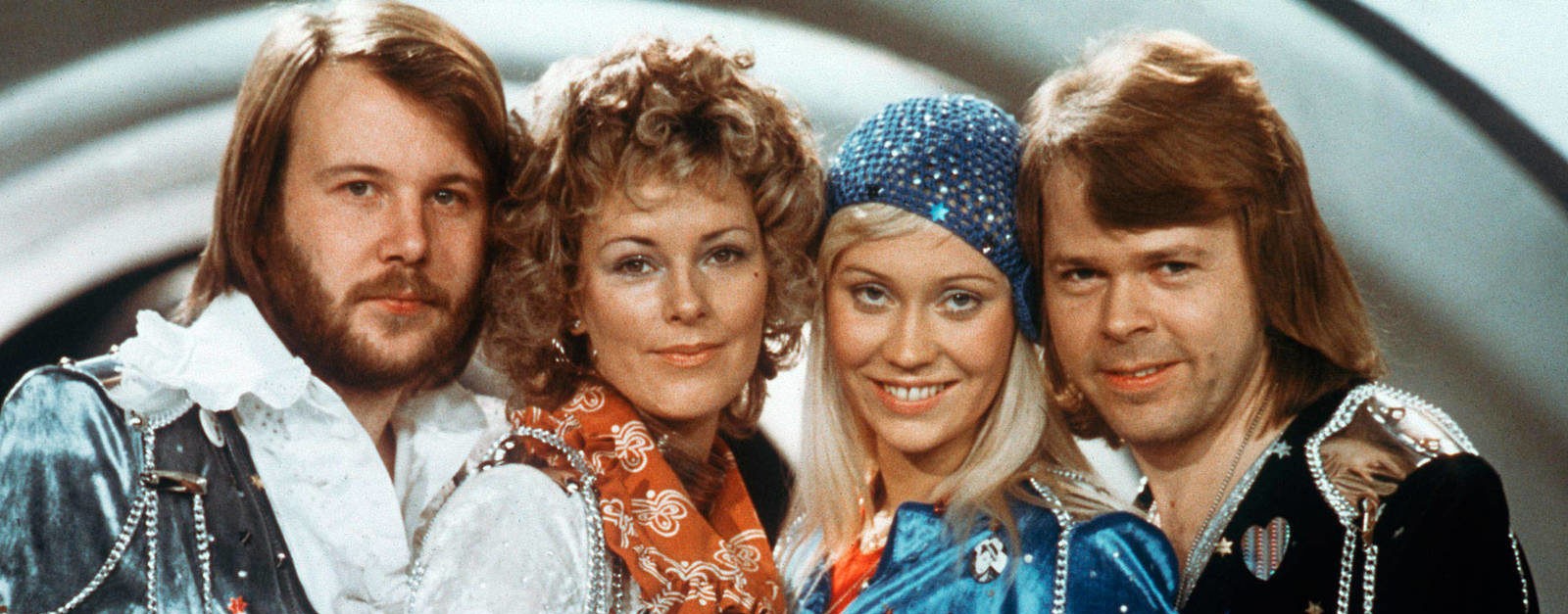The place is Brighton, England. The location is the Dome. The date is April 6, 1974, and a Swedish foursome known as ABBA are on stage. When the quartet wins the Eurovision Song Contest with 'Waterloo', it means the kick-off for their international career.
ABBA's costumes, made by the designer linger Svenneke, are certainly appropriate for those glam rock days; they are also, perhaps the most famous of the group's many colourful stage outfits. Together with their manager, Stig Anderson, and the Napoleon-dressed conductor, Sven-Olof Walldoff, four happy artists are posing with the plaque they were awarded for their victory.

Back home in Sweden, ABBA had enjoyed a landslide victory in the Swedish selection for the Eurovision Song Contest. There was no doubt that ABBAs rock number, and their glittery outfits, constituted a revolution in the otherwise toned-down and well-mannered contest. 'Waterloo' became a worldwide hit, but also firmly established ABBA's position as Sweden's most popular artists. The album of the same name - featuring tracks such as 'Hasta Manana' and 'Honey, Honey' - broke all previous sales records.
In a marked contrast to most Eurovision Song Contest winners, Stig Anderson was prepared for a major launch of 'Waterloo' even before ABBA won the Swedish selection. The group were already signed to labels all over Europe, and with the Swedish victory those labels were informed that ABBA would be featured in the Eurovision Song Contest, Stig himself travelled from country to country to ensure that every radio station had a copy of the single. He also put in ads in the major American trade papers so that no one would miss out on the fact that 'Waterloo' was about to hit the world.
Stig's campaign was highly successful. Immediately after the Brighton victory ABBA were thrown into a whirlwind of interviews, photo shoots and television appearances. For several weeks they travelled across Europe to perform 'Waterloo', and as a result they left an indelible mark on the international pop arena.
After 'Waterloo' nothing was ever the same again for Agnetha, Bjorn, Benny and Frida. Four artists who had been successful in their native Sweden were now famous all over the world.





